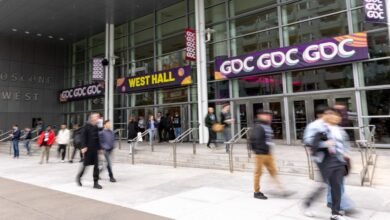GDC Gaming Rebrand Sparks Industry Backlash

▼ Summary
– GDC is rebranding as “GDC Festival of Gaming” but remains an industry-only event, not open to consumers.
– New pass options include a cheaper Festival Pass without GDC Vault access and a premium Game Changer Pass with extra perks like the Luminaries Speaker Series.
– Industry reactions are mixed, with some praising the changes and lower prices while others criticize the rebrand as confusing and insufficient.
– Many developers cite high costs, travel concerns to the US, and better value from other events as reasons for not attending in 2026.
– The event will feature an extended content program over a week, including potential keynote returns and new formats, aiming to evolve beyond its traditional structure.
The recent rebranding of the Game Developers Conference (GDC) to the GDC Festival of Gaming has ignited a firestorm of debate across the video game industry. While organizers clarify the event remains strictly for industry professionals, the introduction of new pass tiers and a broader content schedule has left many questioning the direction and value of this cornerstone event. The core transformation involves a new Festival Pass priced significantly lower than the previous All-Access pass, though it notably excludes entry to the GDC Vault of digital talks. A premium Game Changer Pass offers Vault access plus a special executive speaker series and other perks.
Mark DeLoura, GDC’s Executive Director for Innovation and Growth, emphasized that the “festival” aspect refers to a wider variety of content, not a move into the consumer space. He also addressed criticism of the rebrand’s promotional material, suggesting that any discussion of the ads is a positive sign. Despite the lower entry point, attendance remains a major financial commitment. The Festival Pass is $1,199, with an early bird discount of $649, while the Game Changer Pass costs $2,499 ($1,699 early bird). Digital Vault access alone is $799.
Industry veterans are divided on the changes. GDC founder Chris Crawford has previously warned the event risks becoming a “dinosaur,” overshadowed by digital alternatives and the high costs and complications of traveling to its California location.
Brian Baglow of the Scottish Games Network calls the rebrand a “missed opportunity” for not opening up to players, educators, and adjacent creative industries. He will not attend, seeking more diverse events instead. Hendrik Lesser of Remote Control Productions, while supportive of change, is “mildly sceptical,” questioning the logic of cramming so many target audiences into one week and citing the current US administration as a reason he will skip 2026.
Studio Gobo’s Xu Xiaojun worries the focus is shifting from developer craft to celebration, but he will still attend for its unparalleled global networking. An anonymous agency head criticized the “consumer brand” tease as a shallow ploy for “whale money” and won’t attend due to the “eye-wateringly expensive” total cost.
Shalin Shodan of Masala Games feels the rebrand doesn’t align with the changes, lamenting the Vault’s exclusion from the Festival Pass. After two years of attending, the time and resource costs haven’t paid off, and he believes online meetings can be more effective.
Conversely, Bob Makin of Behaviour Interactive sees a “very promising evolution,” praising the lower prices and formalization of popular off-site meeting spots. Alison Lacy of Radical Forge also welcomes the dedicated networking spaces and cost reduction, confirming her studio’s attendance.
Martin Wein of GameFlex Consultants believes the rebrand fails to solve core issues, like attracting major players back to the show floor, and is put off by the US political climate. Tom Kaczmarczyk of IndieBI, while wishing for a split between business and creative tracks, will attend, stating the benefits of the event’s “critical mass” still outweigh the problems.
Dan Griliopoulos, a narrative designer, advocates giving the changes a chance, calling the new format “more tempting” but still too pricey for non-corporate developers, especially those traveling from Europe. Wouter Sleijffers of ELO sees the name change as positive but a “miss” for not including consumers, and will prioritize closer, more budget-friendly events like Gamescom.
Gina Jackson of Pitchify supports the iteration and plans to attend for its global community connections. Richard Browne of Blue Moon Production is “genuinely happy” with the reboot and broader format but criticizes the lack of a robust online attendance option, noting many are reluctant to travel to the US.
Dan Marshall of Size Five Games delivered a blunt “absolutely not,” deeming the financial investment “madness” and expressing strong reservations about traveling to America. Mike Rose of No More Robots, a former GDC insider, echoed these sentiments, citing San Francisco’s expense and decline as primary reasons he will never return, viewing the rebrand as a superficial attempt to mask deeper problems.
The industry’s response highlights a central tension: a desire for GDC to evolve and remain relevant against concerns over its cost, location, and fundamental identity.
(Source: Games Industry)
